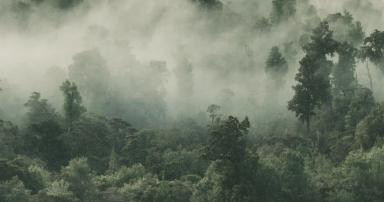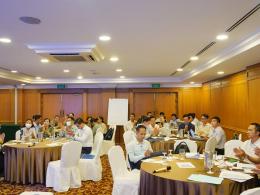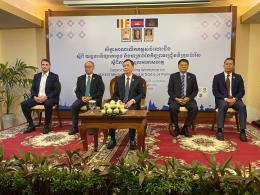Climate change is considered one of the greatest threats to water systems. It manifests itself as shocks (e.g. increased droughts and floods, more severe storms) and stresses (e.g. reducing groundwater levels, rising oceans), and requires water systems to build resilience to protect themselves from potentially devastating effects. Cambodia is highly vulnerable to climate change, such as floods and droughts, which increasingly threat quality and continuity of water supply systems service, specifically in rural areas. Based on the 2020 Social Economic Survey, in a country where 35% of rural inhabitants still lack access to basic water supplies, the quality and quantity of water made available all year round is crucial.
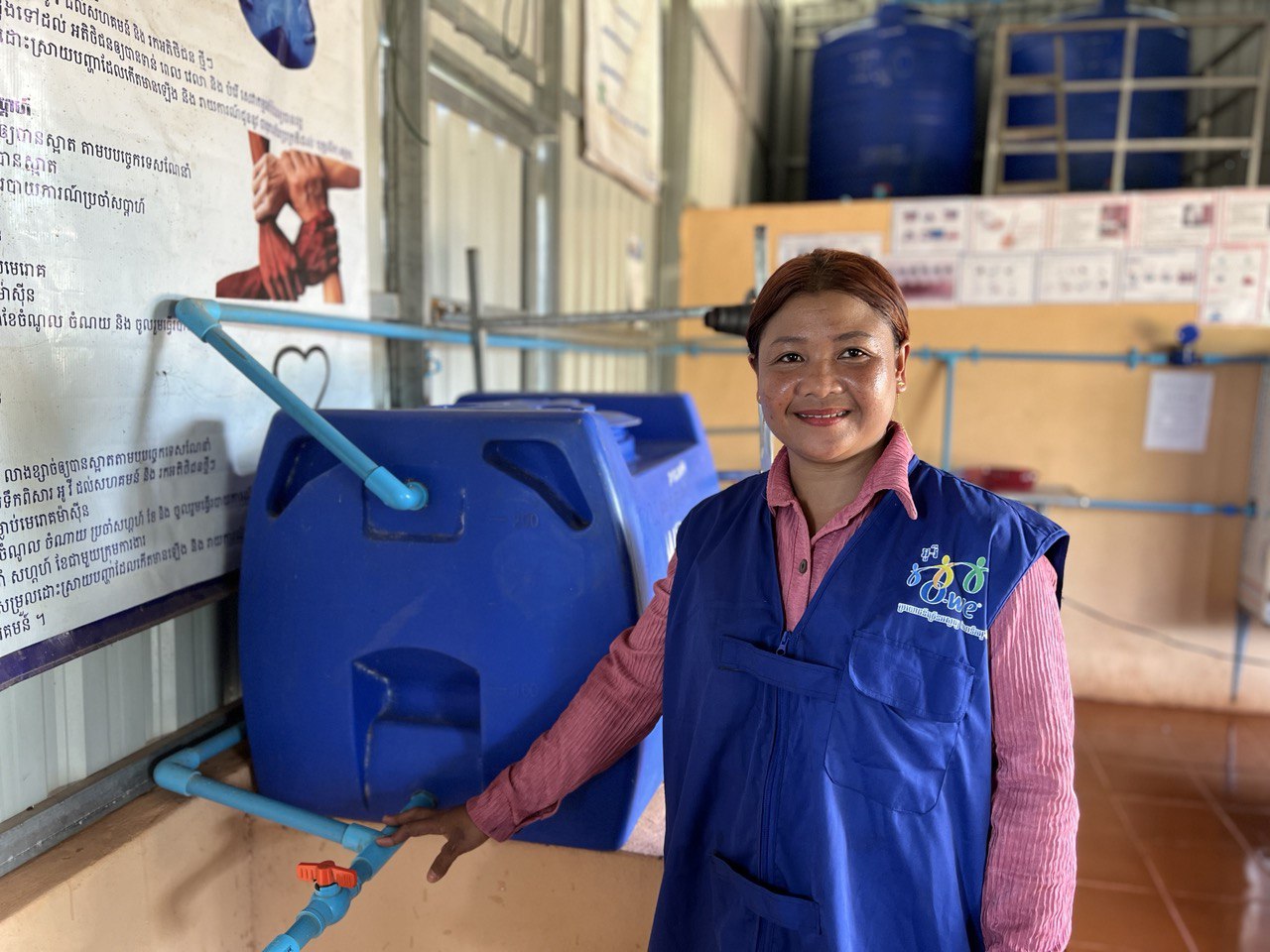
Water Kosh (Owe) operation run by a woman entrepreneur in Teuk Chour commune, Banteay Meachey province
Through its Department of Rural Water Supply (DRWS), the Ministry of Rural Development (MRD) is responsible for providing water supply services in rural communities. The MRD and Teuk Saat 1001 with the support of CCCA3 have implemented a joint project to provide long-term access to safe drinking water in rural areas and build the capacity of public servants in the safe drinking water sector. The project has developed a mutualized innovative solution and methodologies to achieve access to safe water, in drought-affected rural communes in the Trapeang Thum commune (Siem Reap province), and in the Tuek Chour commune (Banteay Meanchey province). Each commune has a new installed a water kiosk, and each kiosk employees 4 persons and that they are able to produce around 2,350-2,950L per day, sold at an average price of 1590 riel/20l bottle. In these two communes, the project has reached 1,510 female-headed households and provided free drinking water to some primary schools.
This case study aims to identify the perspectives of women beneficiaries, highlighting their experiences and their roles and responsibilities in contributing to climate action.
The project has utilized innovative approaches to ensure that the selected communes have adequate access to safe water with the participation of women entrepreneurs (figure 1). First, a water kiosk is established to supply daily safe drinking water to a commune affected by water scarcity. Each is community-owned and powered by solar energy. In each site, a woman entrepreneurs is selected by MRD and Teuk Saat 1001 to be trained on daily business operation. Then, regular capacity building and training activities for sub-national officers and water entrepreneurs, as well as monthly water monitoring for water quality control. This regular training aims to introduce methodologies and sustainable practices which apply in the water sector. Awareness-raising activities for water consumers and local villages are also carried out to promote the understanding of the importance of safe drinking water that benefits health, livelihoods, and the environment. Finally, stakeholder discussion is regularly conducted to gather comments and lessons learned from water consumers and the relevant stakeholders on how to ensure the sustainability of water operations in the selected communes.
 Figure 1. Innovative approaches solution and methodologies to achieve access to safe water
Figure 1. Innovative approaches solution and methodologies to achieve access to safe water
Mrs. Soy Sareth, a 32-year-old woman entrepreneur, has join the project and she is currently running the operation of water kiosk in Trapang Thum commune, Prasat Bakong district, Siem Reap province. She noted that the project has empowered her to run a business by being equipped with concrete knowledge of water kiosk management, environmental safeguard-related water control, and other business operation approaches. The job provides her with plenty of opportunities to work with different people from government and private entities and also earns extra income to support her livelihood.
"I am delighted to have been selected as woman entrepreneur to manage a safe drinking water kiosk (Owe), provide safe water to the people in my commune and improve my family's livelihoods at the same time," said Sareth.
Mrs. Ye Yang, 27 years old, is married with two kids and lives in Lvea village, Trapeang Thum commune, Prasat Bakong district, Siem Reap province. She is a housewife, and her husband is a construction worker.
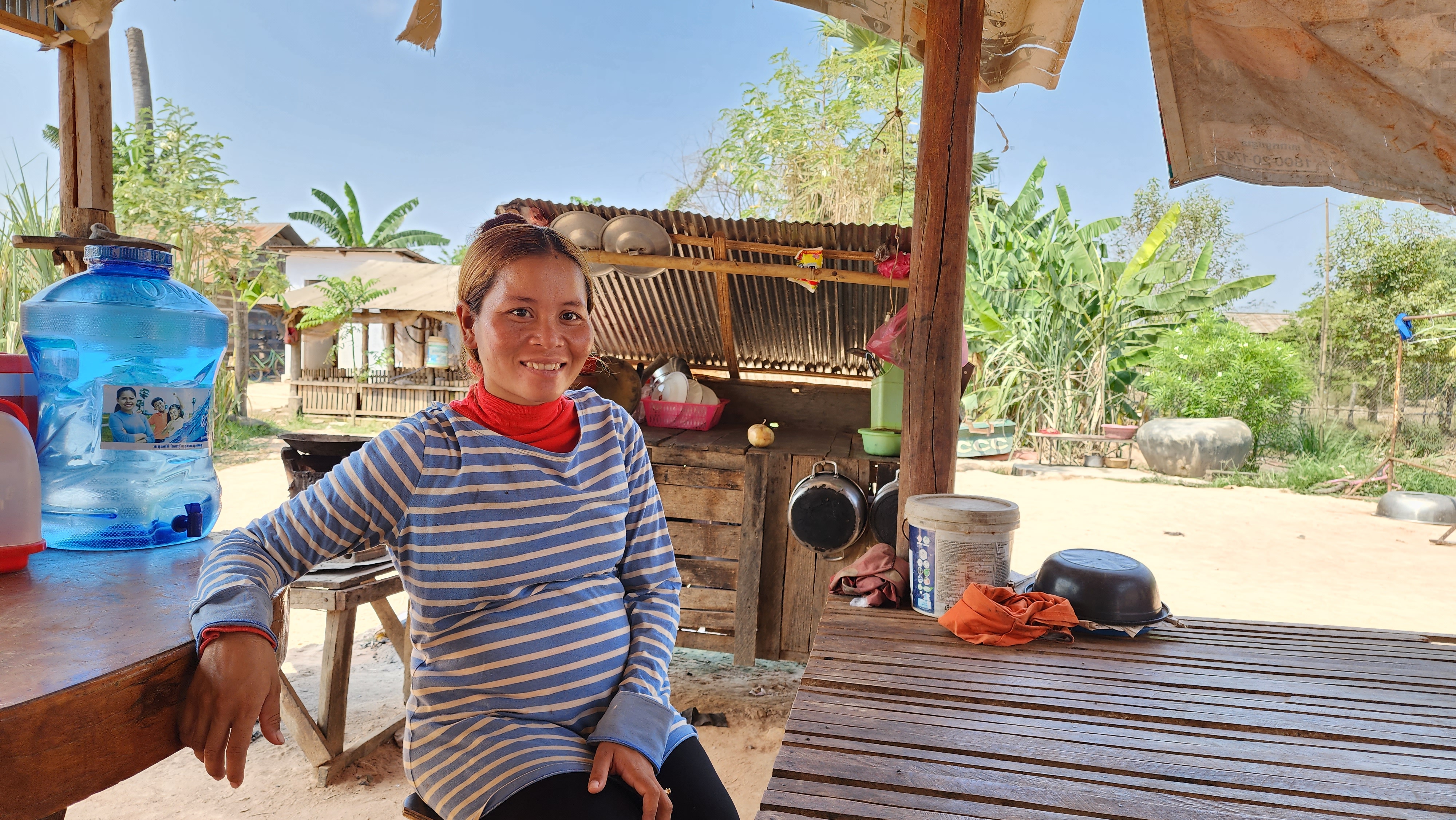 She appreciates having access to the Owe water, produced, and sold by the water kiosk installed in her commune, because it helps to improve her family's health. She explains that before using Owe water, her family drank untreated well water, which often caused her kid to get diarrhea. But after using Owe water, her kid no longer had diarrhea and was able to attend school regularly. She likes drinking Owe water, and she considers it very safe, also during their pregnancy.
She appreciates having access to the Owe water, produced, and sold by the water kiosk installed in her commune, because it helps to improve her family's health. She explains that before using Owe water, her family drank untreated well water, which often caused her kid to get diarrhea. But after using Owe water, her kid no longer had diarrhea and was able to attend school regularly. She likes drinking Owe water, and she considers it very safe, also during their pregnancy.
Mrs. Khorn Men, 38 years old, is married and has a daughter. She and her husband are construction workers. She lives in Roka Kambot village, Trapeang Thum commune, Prasat Bakong district, Siem Reap province. She switched to use Owe water because it offers better water quality at an affordable price. It is delivered at home and allows to reduce the time before used on treating, filtering, or boiling.
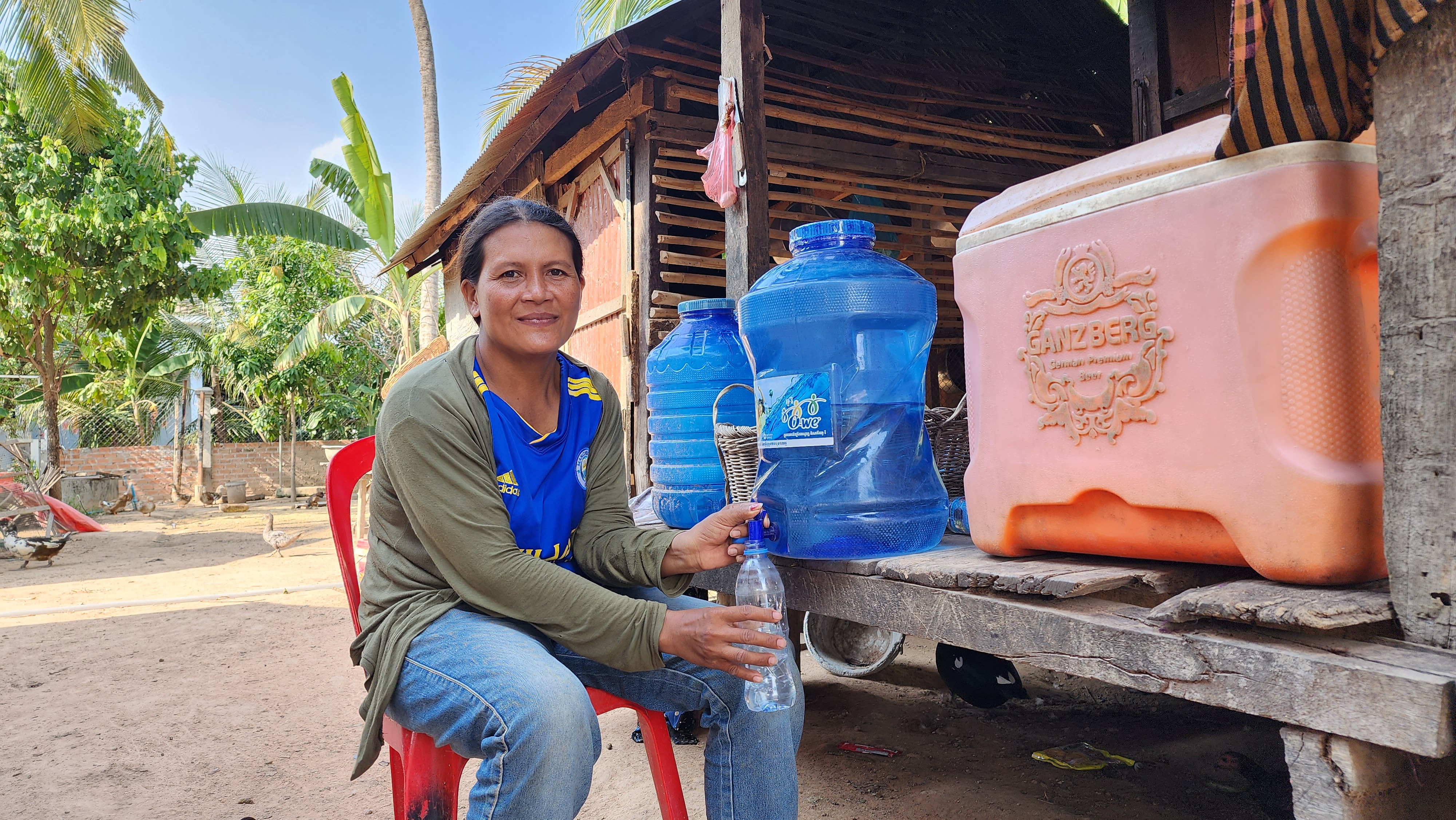 “Before using Owe water, my family sometimes drank untreated water from the well because I had not enough time to boil and filter it,” said Men.
“Before using Owe water, my family sometimes drank untreated water from the well because I had not enough time to boil and filter it,” said Men.
Mrs. Hang Leap, 69 years old, lives in Snay L'a village, Tuek Chour commune, Preah Netr Preah district, Banteay Meanchey province. She is a widow and a farmer. She looks after her granddaughter because her parents migrated to Thailand to work. Before using Owe water, she used boiled water. She explains that she likes Owe water because it is good in quality, it is available all year round, even during drought periods. It has no smell and good taste.
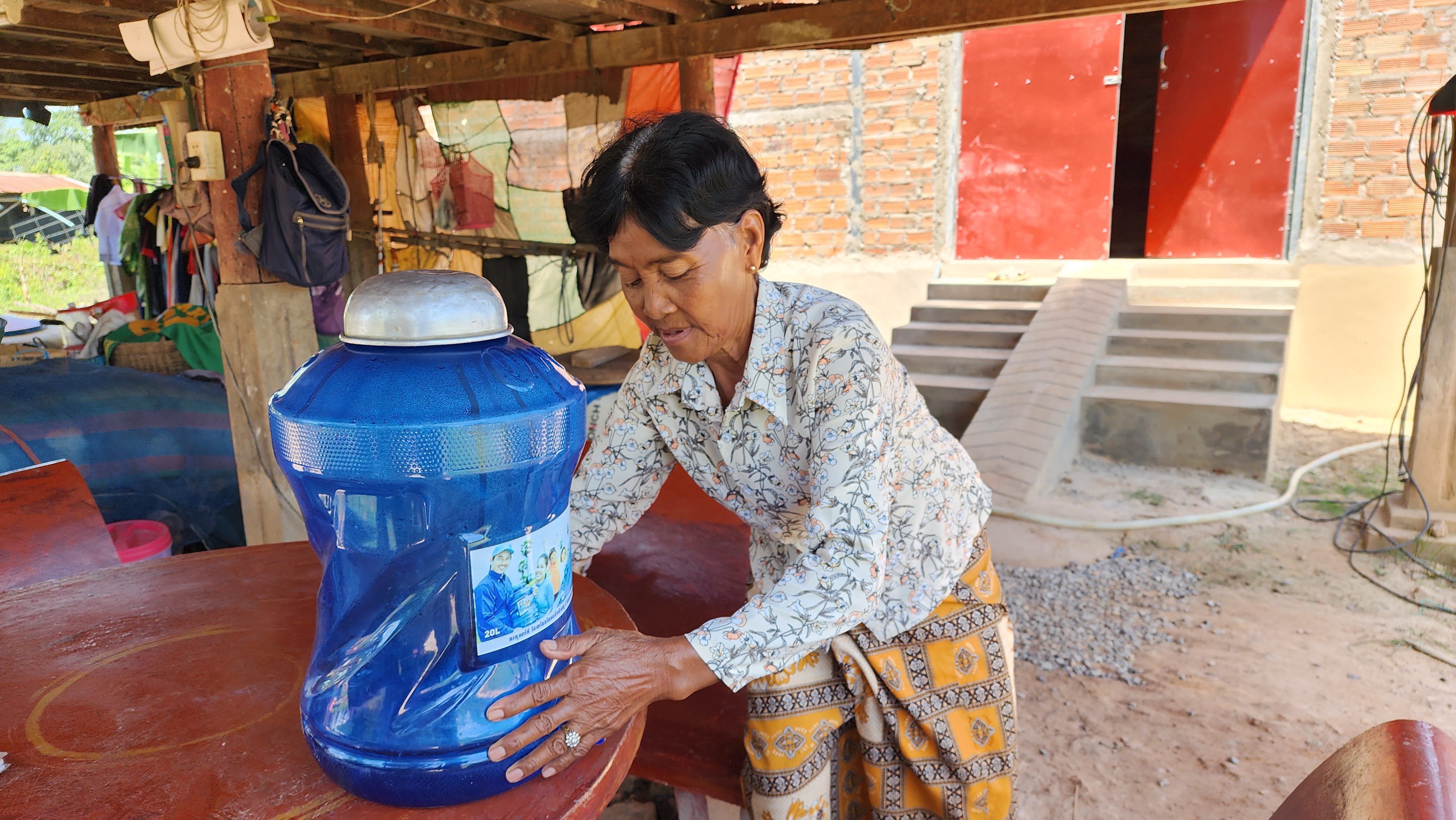 “It is convenient, and I do not need to spend on wood and charcoal to boil water," she said.
“It is convenient, and I do not need to spend on wood and charcoal to boil water," she said.
Mrs. Thou Phanna, 44 years old, is married and has 3 kids. She is a farmer, and her husband is a taxi driver. They live in Snay L'a village, Tuek Chour commune, Preah Netr Preah district, Banteay Meanchey province.
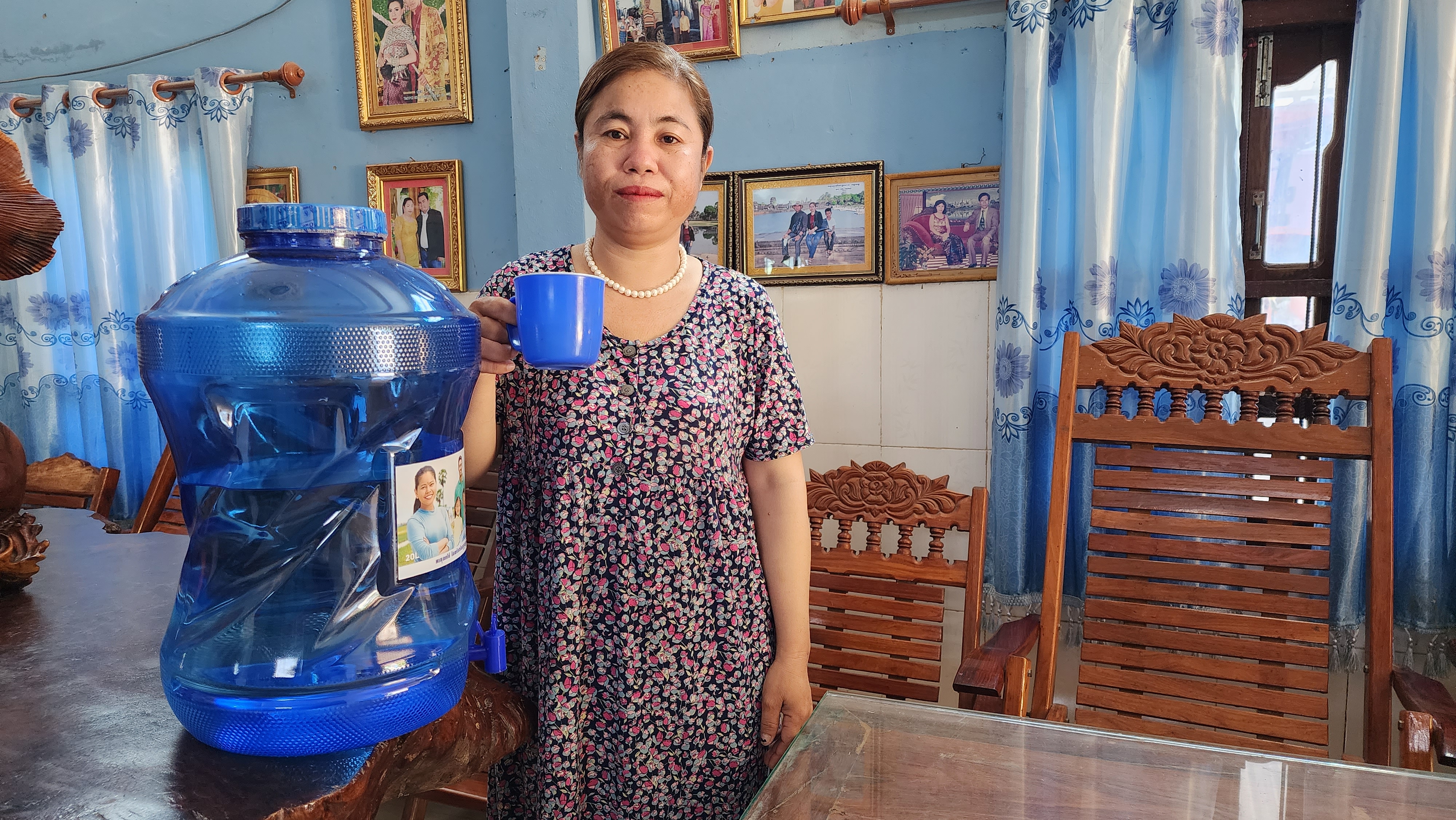 Before using Owe water, she used to boil water from the well. She states that using Owe water provided her many benefits: for instance, access to safe water is easier than before, it makes her save time and money on boiling water. Moreover, it tastes good and doesn’t affect their health.
Before using Owe water, she used to boil water from the well. She states that using Owe water provided her many benefits: for instance, access to safe water is easier than before, it makes her save time and money on boiling water. Moreover, it tastes good and doesn’t affect their health.
In addition to providing safe water to the local communities, the water kiosk supported by the CCCA3 have also provided free drinking water to primary schools in the selected communes. Convenient and safe drinking water to primary school students gives multiple benefits to their health and to the environment.
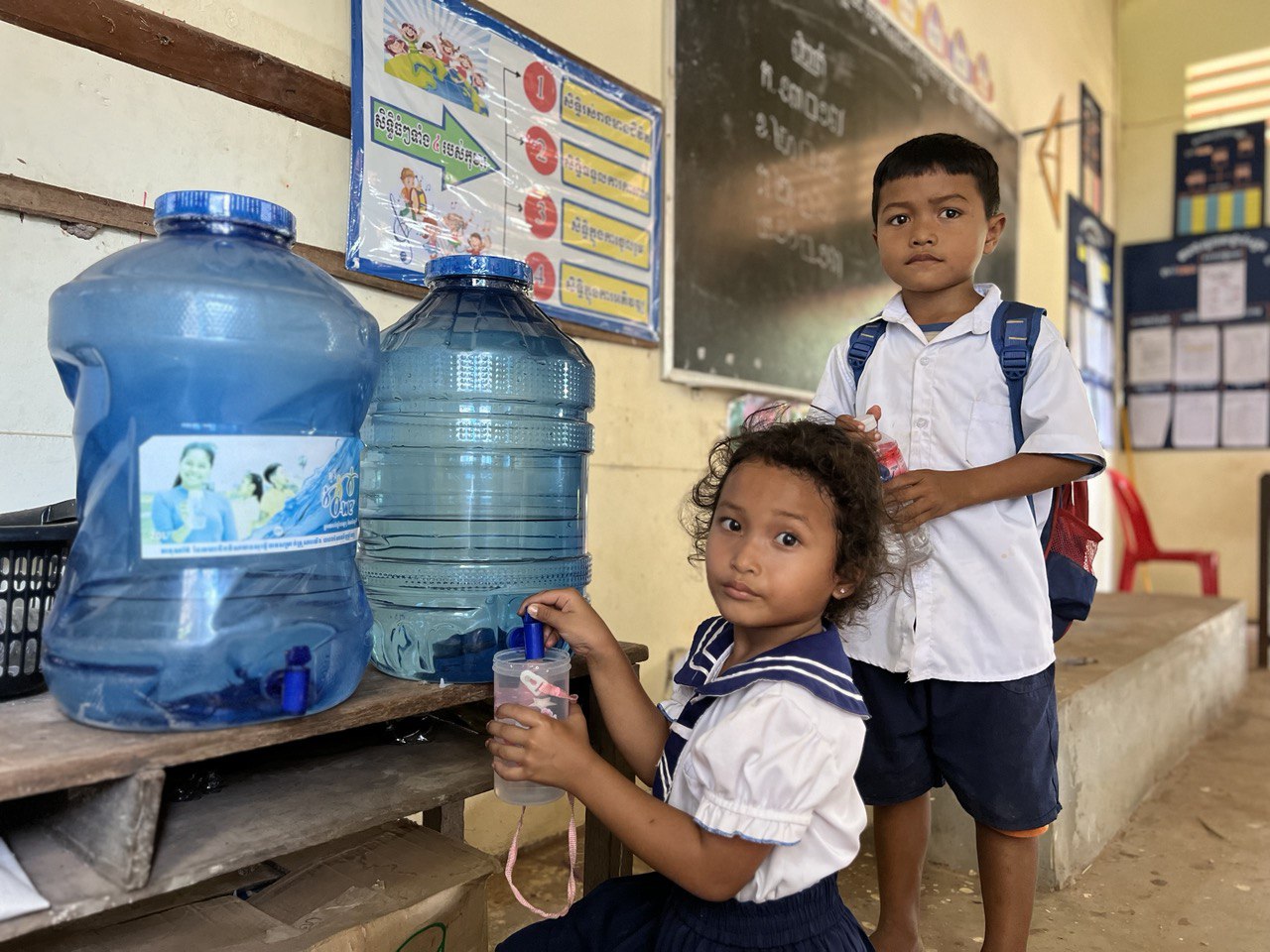
“Before I had to bring my water bottle from home, which was not boiled or purified, to have something to drink at school. But now, after the water kiosk was installed in my commune, I've free drinking water. I think that the water is safe to drink, and I’ve never had diarrhea as before” said a primary school student.

